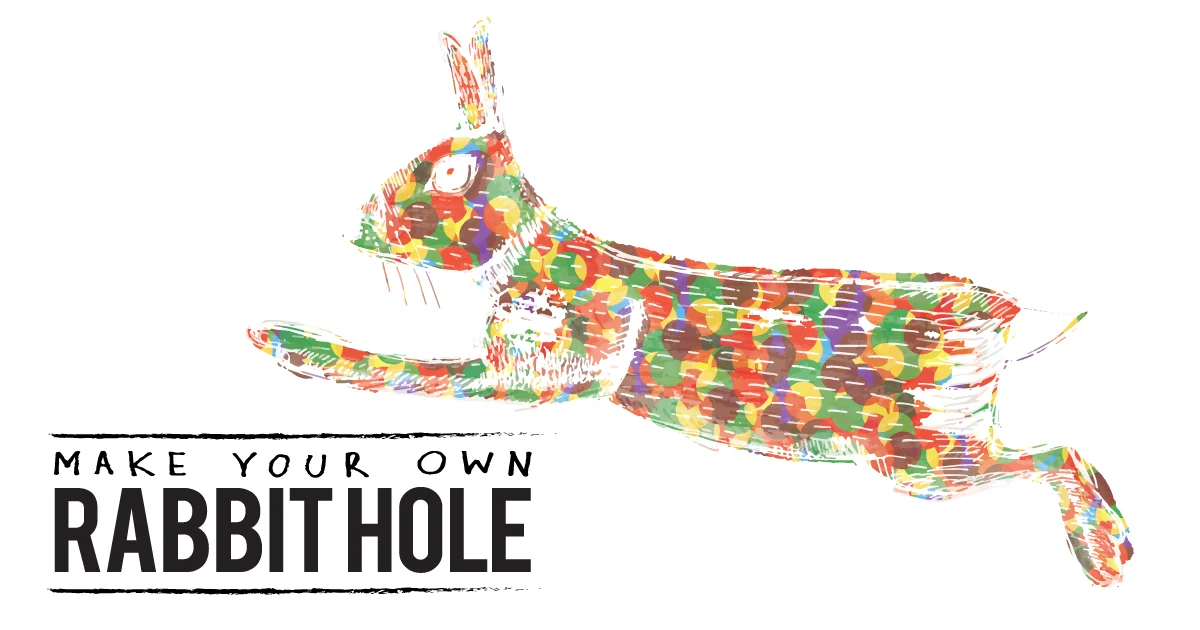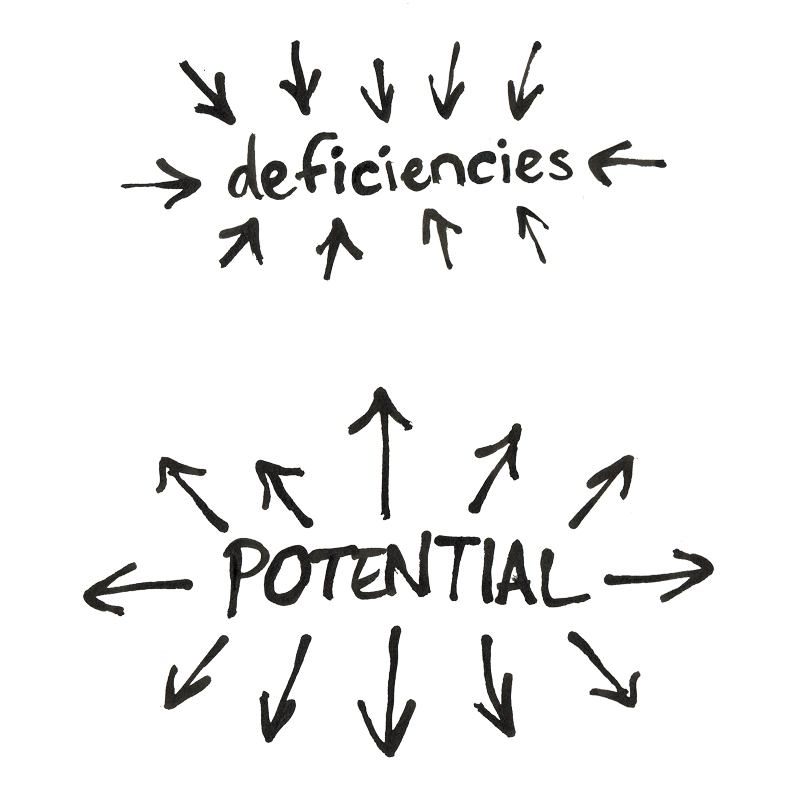How can I be you?
/"Why can't I be you," Robert Smith sings in the song of the same name by The Cure. And since there are a million people out there doing great, brilliant, exciting things, it's a question I think about all the time.
I used to give this workshop on exam preparation for undergrads which was a little bit experimental. I would ask the students to imagine I was their fairy godmother. "By the end of this session," I told them, "I'm going to grant you three wishes."
Students would immediately chuckle a little, but I thought it would work better if I didn't react. I'd continue looking serious and slightly annoyed.
“I’m your fairy godmother, and I'm going to grant you any three wishes to do with your upcoming exams.”
Then I'd hand around a worksheet. It was a page divided into three rows and three columns. The first column was there for them to list three things they most feared about exams. The second column was to write down three corresponding wishes that would banish those fears. The third column was unmarked.
They had five minutes to fill out the first two columns, and after that we went around the room talking about what they’d written and what wishes I was supposed to granting.
This whole opening tactic wasn’t much of a gamble. I already had a PowerPoint presentation full of study tips to give them. And anyway, what people say frightens them about exams and the abilities they wish they had are pretty standard.
For instance, the two most common things students said they were scared of was being asked questions they were unprepared for, or having a total brain freeze and forgetting everything they'd studied. Most of their wishes revolved around either knowing the questions in advance, being able to read their tutors mind, or having a photographic memory—that type of thing.
So after they’d all told me their fears and corresponding wishes came the next phase, because each of their wishes was an opening.
“Ok, I’m going to grant your wishes,” I say, “but I should have warned you, I’m a stingy fairy godmother—you have to do something for me.” This is the point where the workshop shifts from fantasy into a problem-solving. “You have to do something for me for each wish, otherwise it won’t come true."
And here is where that third column comes in. As a group we worked through everyone’s wishes, and attached a related task or habit they had to develop for their magic wish to be granted. For instance, those who wanted to have the power to read their tutor's mind to know what the exam questions would be, had to first go and analyse past exams and look for commonalities from year to year, and read their unit outline and the unit outcomes carefully.
Those who wanted a photographic memory had to spend an hour each day revising their lecture notes using as many pictures, diagrams and strings of vivid word associations they could think of. Like, I don’t know, if they were learning French and they wanted to remember that gateau means cake they’d have to draw a crude picture of Garfield eating a cake (Garfield starts with G, he’s a cat, which is like ‘cateau’, etc. To which they'd probably say, “Who’s Garfield?").
The reason I started experimenting with this whole silly fairy godmother routine was to get them to suspend their anxieties about their upcoming exams, and start thinking about small, regular and achievable things they could do to improve their chances for success.
That’s what the whole thing pivots on—less thinking in terms of their deficits; more thinking about their potential and what they could do to capitalise on it.
Plus, it was a bit of fun and if I stood up the front and gave them a dry list of prescriptions—do this, don’t forget that, make sure you bla, bla, bla—they wouldn’t take it in as much. The idea of the wishes thing was to give them a chance to reflect and communicate what they feared, what they needed, and to lead them to the question—how can I get it?
The gap between expectations and ability
A few issues back, I was talking about Ira Glass and the advice he said he wished he’d been given when he first started out. He said, "All of us who do creative work [...] get into it because we have good taste." That’s why we’re drawn to being creative. But when we first start trying to make stuff, we soon realise that what we do isn’t as good as the things we love—our expectations don’t match our abilities and the quality of our output.
So naturally (I’m still paraphrasing here), some of us give up prematurely. We bow out (this bit’s mine) because it’s obvious we’ll never match up to those creators we hold in high regard. They have talent, and as demonstrated, we don’t.
But! (I’m back to paraphrasing.) Ira says if we grit our teeth and commit to producing a lot of work and waiting out the awfulness, we'll eventually make better and better work.
The gap between our excellent taste and our ability to produce good work will get shorter.
“It’s gonna take awhile,” he says. “It’s normal to take awhile. You’ve just gotta fight your way through.”
I think this tension between taste and ability is related to that distinction I was talking about earlier between deficits and potential.
So, entertaining the idea that I have good taste—whose work do I love and what can it teach me? If I could be a fairy godmother to myself and flip that switch that changes my perspective from deficit to potential, what wishes would I grant myself? With that in mind, I’ve decided to set myself the task of finding out over the next week.
All I need to do is think up a name for this exciting mini-project…
Operation Hot Fairy Godmother
So first I think I need to do a little research.
Who do I love creative-wise? What’s the type of work I aspire to? And then the trick is, I guess, finding a way to align my wishes with easily achievable tasks, goals, habits, experiments, outcomes.
Step one—I thought I’d brainstorm a list of my favourite books, artists, works, and then try and see what makes them tick, and what I can learn from them. And also, I thought a little who, what, when and why digging around might help.
I'd ask myself some questions. Something vaguely like this...
Who or what do I like, love, long to be or long to have made?
This part will be easy—the wish list. If I had a magic wand, who would I be, or what type of work would I be making? I guess it doesn’t matter how crazy the list is—the more outrageous the wish the better.
Why do I love this artist or work?
Then I thought I could dig a little below the surface. We may love something but not really know why we love it. What exactly is the effect this person or work has on me? What function does it fulfill? What does it, he or she mean to me personally?
Which relates to the next question...
What is it about this person or work that makes me envious or excited?
Here I thought I'd be specific. I need to figure out the technical things that attract me to these artists or works—the nuts and bolts, riffs and quiffs, quills and quatrains part of what others do that I wish I could too.
And finally...
How could I reproduce, or work towards reproducing something similar?
This is the stingy godmother part. What simple things could I try to develop in order to assimilate these good qualities into my own work?
Anyway, that’s the challenge I’ve set myself this week. I guess I'm trying to make that shift from 'Why can't I be you?' to 'How can I be you?' (or at least a little bit like you).
I'll let you know how it goes.
If you have any hints or tips about 'Operation Hot Fairy Godmother,' including better suggestions for a name, or want to try it out yourself and share your experiences, leave a comment below or on my Rabbit Hole Facebook page.
Rabbit














Painter Tracey Read talks about spending four weeks painting and drawing her way around Italy.